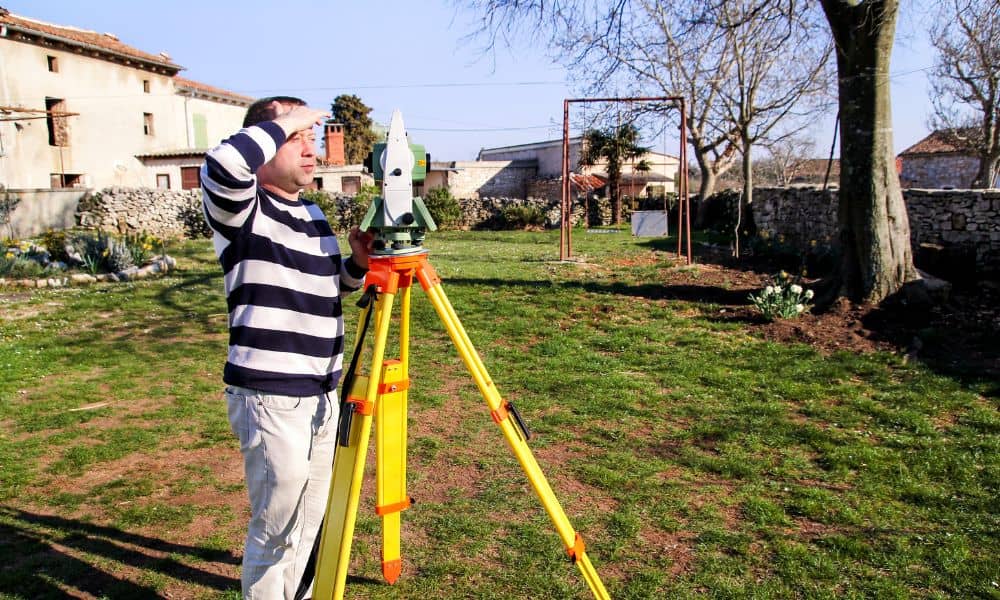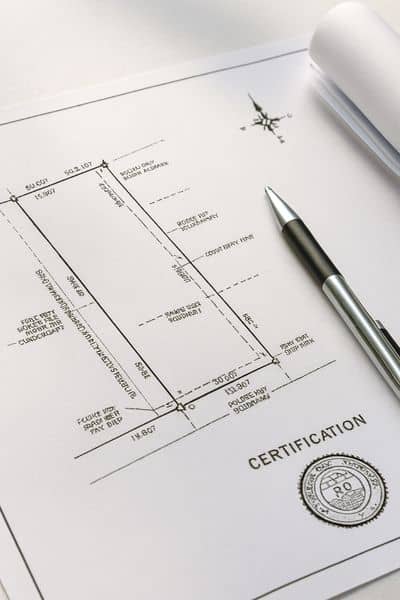
If you’re buying or fixing up a home, chances are you’ve heard about the need for a property survey. Then comes the sticker shock: a survey quote lands in your inbox, and it says $1,200. For many first-time buyers or longtime homeowners, that number feels high. The natural question is: is this price normal, or are you being overcharged?
The truth is that $1,200 is often a fair price, but understanding why is the key to feeling confident about paying it.
Why the $1,200 Question Keeps Coming Up
In the past week alone, online forums like Reddit filled up with Philadelphia homeowners asking the same thing: “Do I really need to pay $1,200 for a survey?” One buyer was told the bank required it before closing. Another homeowner said their insurance company wanted a survey after flooding concerns. Others simply wanted to mark their property corners before putting up a fence.
These frustrations highlight the same core issue: most people don’t know what goes into the price of a property survey. It isn’t just a quick walk with a tape measure. In Philly, it’s a process with real liability, legal documentation, and sometimes complex history.
What You’re Actually Paying For
When you get a survey quote, here’s what usually makes up the cost:
- Research: Before a surveyor sets foot on your lot, they dive into deed records, plats, and city archives. In older neighborhoods, these documents may be outdated or inconsistent, so it can take hours to confirm what your lot really looks like on paper.
- Fieldwork: Surveyors bring out advanced tools — GPS units, total stations, and sometimes even ground-penetrating radar — to find your corners. Many original iron pins or stones are buried or missing, which means extra time to locate or replace them.
- Drafting and Certification: After the fieldwork, a licensed surveyor prepares a legal map showing boundaries, dimensions, and any encroachments. That map is certified with their license number, and they are legally responsible for its accuracy.
- Coordination: If your survey is tied to a loan closing or city permit, the surveyor also communicates with title companies, lenders, or Department of Licenses and Inspections (L&I). That coordination adds time, and time adds cost.
In short, you’re not just buying a piece of paper. You’re paying for professional expertise and legal accountability.
Why Surveys Cost More
Homeowners in the suburbs may hear friends brag about paying $700 or less for a survey. So why is it higher in Philly? The answer lies in the environment.
City lots are tight, access is limited, and boundaries are often tangled in a web of old deeds. Imagine trying to confirm a rowhome’s boundary in South Philly where fences overlap, sidewalks have shifted, and property markers are buried under concrete. That takes more time than staking out a large open lot in the suburbs.
Philadelphia also has stricter oversight. L&I often requires proof of boundaries before issuing permits for fences, driveways, or additions. Title companies in the city are also cautious, especially with older homes where encroachments are common. This extra level of review makes surveys here more detailed — and yes, more expensive.
What $1,200 Usually Includes (and What It Doesn’t)

For a typical rowhome or small city lot, $1,200 usually covers:
- Complete record research.
- On-site measurements and corner verification.
- A certified survey map you can use for permits or legal disputes.
- Communication with your lender or title company if it’s tied to a closing.
What it often does not include are extras like:
- Boundary staking: physically marking your property corners with pins or stakes. Some homeowners want this for fencing, but it can add a few hundred dollars.
- Flood or elevation certificates: if your property is near a flood zone, insurers may require a separate elevation certificate. That’s a different document and a separate fee.
- Subdivision or consolidation work: if you’re combining or splitting lots, that’s a different type of survey entirely, with its own costs.
Knowing what’s included in your quote helps you compare apples to apples when talking to different surveyors.
Common Homeowner Questions, Answered
“Do I really need a survey?”
If you’re buying with a mortgage, most lenders require one. If you’re building or renovating, L&I may demand it before issuing permits. Even if no one requires it, a survey protects you from future disputes and costly mistakes.
“Why is it so expensive for just a piece of paper?”
That “piece of paper” carries the legal weight of a licensed professional’s certification. Surveyors face liability if boundaries are wrong. They invest in insurance, equipment, and years of training. The price reflects the responsibility they carry.
“My insurance company asked for a survey — is that normal?”
Yes, especially if your property is near a floodplain or you’ve filed a claim. Insurers use surveys and elevation certificates to confirm risk levels and premiums. In Philadelphia, with its flood-prone creeks and rivers, this request isn’t unusual.
How to Avoid Overpaying
While $1,200 is often fair, you still want to make sure you’re not paying extra for services you don’t need. The good news is that Philadelphia homeowners do have affordable property survey options, but finding them comes down to asking the right questions.
- Ask for a detailed quote: Make sure it lists what’s included so you can compare fairly.
- Clarify corner staking: If you need it, confirm it’s in the price. If you don’t, make sure it’s not bundled in.
- Order early: Don’t wait until the week of closing or construction. Rush jobs almost always cost more.
- Hire a licensed surveyor: In Pennsylvania, only licensed surveyors can produce legal property surveys. Avoid anyone offering a “cheap mark-up” without certification.
When Paying More Makes Sense
Sometimes, paying a little more is worth it. If your lot is in a flood zone, has a messy deed history, or sits in a historic neighborhood with overlapping boundaries, a detailed survey can save you thousands in the long run. Think of it as an insurance policy: it prevents disputes, stops construction delays, and protects you in court if a conflict arises.
Final Thoughts
So, is a $1,200 property survey normal? The answer is yes — and often worth every penny. While the number may seem steep at first glance, it reflects the real work, risk, and detail required to certify property boundaries in a dense, historic city.
Instead of seeing it as another closing cost, view it as a long-term investment. A solid survey protects your rights, supports your permits, and gives you peace of mind. And when neighbors, lenders, or insurers come knocking with questions, you’ll have a certified document that answers them all.
If you’re buying, selling, or building, don’t let sticker shock keep you from getting a survey. Talk to a licensed local surveyor, ask the right questions, and you’ll see why $1,200 is often money well spent.